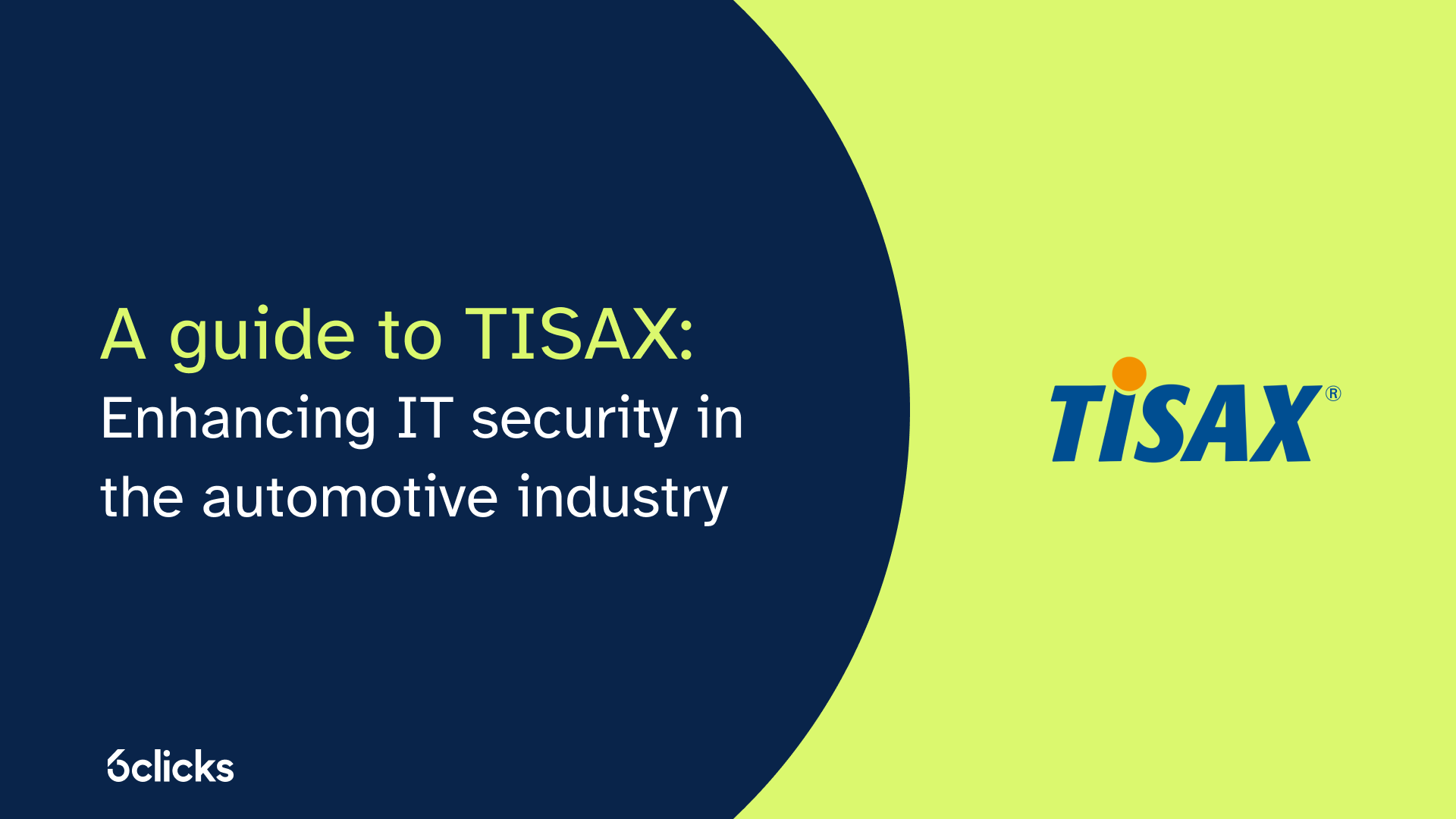
In the digital era, the automotive industry's reliance on information technology is undeniable, making robust IT security a critical concern. The Trusted Information Security Assessment Exchange (TISAX) plays a pivotal role by setting a benchmark for IT security standards within this sector. This framework ensures security and facilitates trust among industry players through a standardized exchange of information.
What does TISAX compliance entail?
TISAX, introduced by the German Association of the Automotive Industry (VDA) in 2017, establishes a foundational level of information and cyber security across the European automotive sector. Managed by the ENX Association, although not formally acknowledged as an international standard, many international software partners opt for TISAX certification.
Initially modelled on ISO/IEC 27001, which outlines a framework for safeguarding information via an information security management system (ISMS), TISAX expands on this framework. It incorporates data and prototype protection directives, among other domains, and differs in scope, assessment criteria, and recommended security measures.
Who needs to comply with TISAX requirements?
Compliance with TISAX requirements is vital for any entity involved in the automotive supply chain that handles sensitive information. This includes manufacturers, suppliers, service providers, and third parties collaborating directly with automotive companies. Compliance ensures all parties adhere to a consistent and high level of security, protecting shared information's integrity and confidentiality.
Is TISAX obligatory?
While there are no legal mandates for TISAX certification, companies without it face limitations in collaborating with key players in the automotive industry. Certification becomes indispensable for operating within this market. Hence, for many companies, TISAX certification is an essential requirement.
How do TISAX and ISO 27001 relate?
While TISAX derives from ISO 27001, both standards are fully independent of one another. This also pertains to audits and certifications, where there are no interdependencies between the two standards.
TISAX and ISO 27001 serve as standards for information security, yet their application and nuances set them apart. ISO 27001, a generalist standard, encompasses information security management systems (ISMS) across diverse industries, while TISAX specializes in securing the automotive supply chain, particularly focusing on manufacturers' data. The certification processes differ significantly: ISO 27001 mandates addressing all requirements and applicable security measures, whereas TISAX certification involves a tiered assessment, with level 3 certification being the benchmark, conducted through various methods, including self-assessment and third-party audits.
In terms of scope, ISO 27001 permits companies to define their scope, allowing certification of specific areas or the entirety of the company, while TISAX evaluates the entire company structure and its information security processes without scope exclusions. While both standards address similar issues in information security management, ISO 27001 offers a broader framework that is adaptable across industries, while TISAX remains tailored to the automotive sector.
TISAX assessment levels
TISAX assessments are structured into three levels, reflecting the sensitivity of the information handled:
- Level 1 (BISR): For organizations handling low to moderate sensitivity information. This level involves a self-assessment using the Information Security Assessment (ISA) questionnaire.
- Level 2 (ISMS): For organizations handling high-sensitivity information. This level requires a comprehensive evaluation, including a self-assessment and external verification by an external auditor.
- Level 3 (AISMS): For organizations with very high-sensitivity information. This rigorous level includes self-assessments, external auditor verification, and on-site inspections.
What do the TISAX controls cover?
TISAX controls provide a comprehensive framework covering several aspects of information security:
- Data protection: Safeguarding the confidentiality, integrity, and availability of data.
- Access control: Managing who can access various types of information and systems.
- Threat protection: Implementing measures to detect, prevent, and respond to cybersecurity threats.
- Physical security: Protecting facilities and hardware from unauthorized access or damage.
- Operational security: Maintaining secure operations and development environments.
- Third-party security: Managing risks associated with external partners and service providers.
TISAX compliance in action
Major cloud services like Microsoft Azure, Office 365, and Dynamics 365 effectively illustrate the implementation of TISAX compliance. These platforms have undergone extensive assessments to meet TISAX requirements, ensuring automotive companies can rely on their security and compliance. As a result, an automotive company or manufacturer can use these cloud solutions to manage sensitive data, inheriting some of the TISAX controls from Microsoft.
The importance of TISAX in the automotive industry and the exchange aspect
TISAX is not just about compliance; it's about creating a secure information exchange ecosystem within the automotive industry. This aspect is crucial as the industry moves towards more connected and autonomous vehicles and faces increasing cybersecurity threats. TISAX enables companies to assess and verify the security measures of their business partners, ensuring that sensitive information such as vehicle designs, manufacturing processes, and customer data are protected across the supply chain. This exchange mechanism significantly enhances trust among industry players, making collaboration more efficient and secure.
TISAX compliance with 6clicks
TISAX transcends traditional IT security standards by fostering an environment of trust and secure information exchange among automotive industry players. By adhering to TISAX, companies not only bolster their security posture but also significantly contribute to the industry’s overall resilience against digital threats. As technology continues to evolve, the role of TISAX will undoubtedly expand, becoming integral to the industry’s future sustainability and security.

6clicks' powerful AI capability and unique Hub & Spoke deployment model are designed to support businesses in the automotive industry looking to build resilient cyber Governance, Risk & Compliance (GRC) programs across distributed sites, business units and jurisdictions. Benefits include:
- Standardized security compliance, IT risk, and operational practices, including incident management, across sites, business units and jurisdictions for effective governance.
- Centralized visibility and bottom-up reporting while preserving data segregation, user access control and autonomy.
- Centralized supply chain management for complete oversight and transparency.
- A single source of truth and streamlined distribution for frameworks, regulations, and best-practice content, including audit and assessment templates, control sets and policies, and risk and issue libraries.
If you'd like to learn more about how 6clicks can help you move beyond tick-box compliance and build a mature information security management system (ISMS), streamlining multi-framework security compliance with the most in-demand frameworks, like TISAX, ISO 27001, and NIST CSF, and implementing scalable and effective risk management practices, then please reach out to us below.




